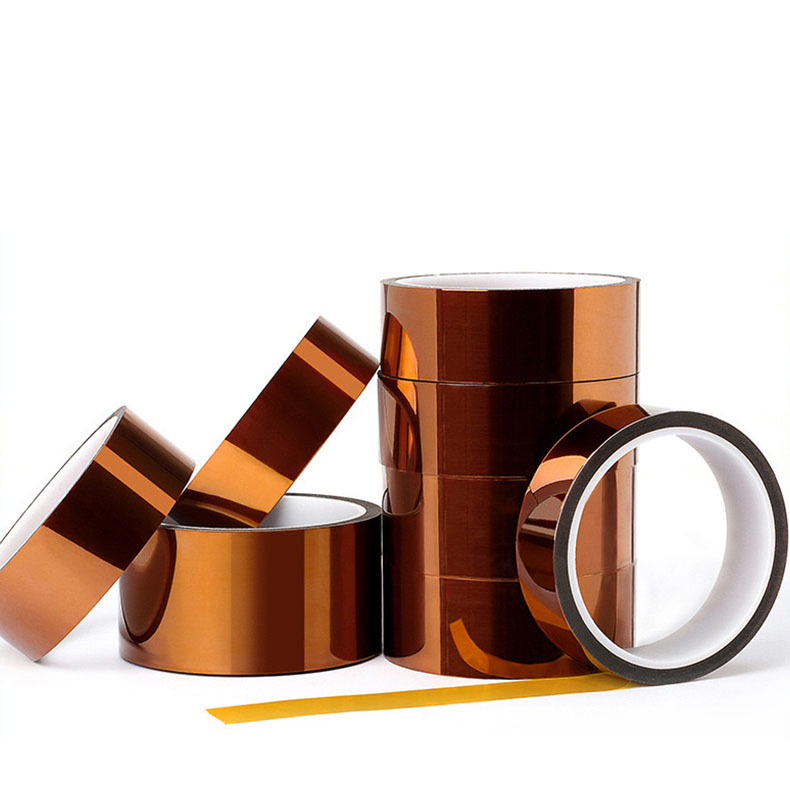In various industries, from aerospace to electronics, the ability of materials to withstand extreme temperatures is crucial for ensuring the reliability and longevity of devices and systems. Polyimide Adhesive Tape, made from polyimide film, is a key player in this space, providing unparalleled thermal resistance and robust insulation properties. Understanding the characteristics of Polyimide Adhesive Tape, including its maximum temperature capabilities (kapton tape max temp) and the role of polyimide tape application in protecting technology, is essential for engineers and technicians working in environments where temperature fluctuations can compromise system integrity.
Polyimide Adhesive Tape is a type of polyimide tape known for its remarkable thermal stability, with the ability to maintain its properties over a wide temperature range. This makes it an ideal solution for applications in environments where equipment is subjected to harsh thermal conditions. The unique structure of the polyimide film allows Kapton tape to operate effectively at temperatures ranging from -269°C to 400°C (-452°F to 752°F). Thus, many polyimide film manufacturers highlight its utility in high-temperature applications, confirming its reputation as a reliable material.
The polyimide tape adhesive used in Kapton tape further enhances its functionality. Designed to withstand extreme conditions, these adhesives maintain strong bonding capabilities during thermal cycling, making Kapton tape an excellent choice for protecting sensitive components in electronic devices, wiring harnesses, and circuit boards.
The versatility of polyimide tape enables its use across diverse sectors. In electronics, Kapton tape is commonly employed for insulation and to provide a surface for soldering. It serves not only as a protective layer but also as a component that contributes to efficient thermal management in devices like semiconductors, where managing heat dissipation is critical.
In the aerospace sector, polyimide tape application becomes even more critical. Aircraft components often experience rapid changes in temperature, both during flight and as a result of external environmental conditions. The lightweight nature and superior thermal stability of Kapton tape make it a favorite among aerospace engineers, providing insulation for wiring in space-constrained areas while ensuring that the integrity of the wiring system is maintained.
One of the standout features of Kapton tape is its ability to resist temperature fluctuations without degrading. This aspect is particularly vital in environments such as manufacturing facilities, where machinery can run at high temperatures, and ambient conditions may vary significantly. Engineers can confidently use polyimide tape in these scenarios, knowing that it will not lose its adhesive properties or structural integrity when exposed to thermal extremes.
Moreover, thermal cycling can lead to material fatigue in many conventional tapes, resulting in failure that may not be immediately apparent. However, Kapton tape maintains its performance over repeated cycles, ensuring the safety and reliability of the technology it protects.

For those looking to incorporate Kapton tape into their projects, knowing where and what to buy is essential. The market offers a range of options concerning thickness and adhesive types, tailored to specific applications. When deciding to buy polyimide tape, consider the unique requirements of your project, including the maximum temperature, level of adhesive strength required, and environmental factors.
Reputable suppliers and polyimide film manufacturers provide detailed specifications for their products, which can guide purchasing decisions. Reviewing these specifications helps ensure that the chosen tape addresses the specific challenges posed by the operating environment.
While Kapton tape is incredibly resilient, proper handling is crucial for maximizing its performance. Ensure that surfaces are clean and free from contaminants before application, as dirt and oil can compromise the adhesive’s effectiveness. It is also advisable to avoid excessive stretching during application, as this can affect the film's structural integrity.
Furthermore, while Kapton tape performs well under high temperatures, exposure to extreme UV light or harsh chemicals can degrade its properties over time. Thus, it’s essential to assess the specific environmental conditions in which the tape will be used, ensuring it remains effective throughout its intended lifespan.
Kapton tape stands out as an essential component within the fields of electronics and aerospace, proficiently addressing the challenges posed by extreme temperatures. Its polyimide tape application covers a broad spectrum of uses, protecting vital components against thermal stress while ensuring structural integrity. Understanding the characteristics of kapton tape max temp, and recognizing the role of polyimide tape adhesive helps engineers and technicians make informed decisions about their applications. By selecting the right products and adhering to best practices, professionals can ensure that their technology remains secure and operational, even in the most demanding conditions.
Whether you’re involved in production, maintenance, or innovation, polyimide tape plays a crucial role in shielding technological advances from the rigors of temperature extremes, allowing for enhanced durability and performance across various applications.